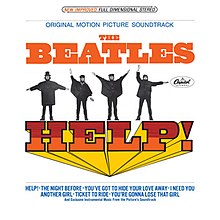
Please Please Me is the debut studio album by the English rock band the Beatles. Produced by George Martin, it was released in the UK on EMI's Parlophone label on 22 March 1963. The album is 14 songs in length, and contains a mixture of cover songs and original material written by the partnership of band members John Lennon and Paul McCartney.
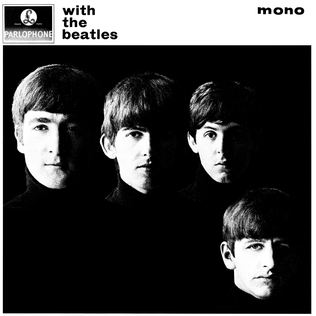
With the Beatles is the second studio album by the English rock band the Beatles. It was released in the United Kingdom on 22 November 1963 on Parlophone, eight months after the release of the band's debut album, Please Please Me. Produced by George Martin, the album features eight original compositions and six covers. The sessions also yielded the non-album single, "I Want to Hold Your Hand" backed by "This Boy". The cover photograph was taken by the fashion photographer Robert Freeman and has since been mimicked by several music groups. A different cover was used for the Australian release of the album, which the Beatles were displeased with.
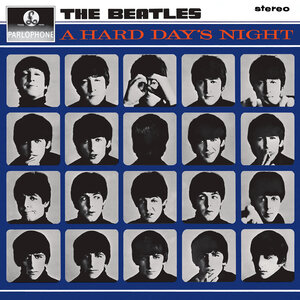
A Hard Day's Night is the third studio album by the English rock band the Beatles, released on 10 July 1964 by Parlophone, with side one containing songs from the soundtrack to their film of the same name. The American version of the album was released two weeks earlier, on 26 June 1964 by United Artists Records, with a different track listing that included selections from George Martin's film score. In contrast to the Beatles' first two albums, all 13 tracks on A Hard Day's Night were written by John Lennon and Paul McCartney, showcasing the development of their songwriting partnership.

Worldwide, the British rock band the Beatles released 12 studio albums, 5 live albums, 51 compilation albums, 36 extended plays (EPs), 63 singles, 17 box sets, 22 video albums and 53 music videos. In their native United Kingdom, during their active existence as a band, they released 12 studio albums, 1 compilation album, 13 EPs, and 22 singles. The early albums and singles released from 1962 to March 1968 were originally on Parlophone, and their albums and singles from August 1968 to 1970 were on their subsidiary label Apple. Their output also includes vault items, remixed mash-ups and anniversary box-sets.
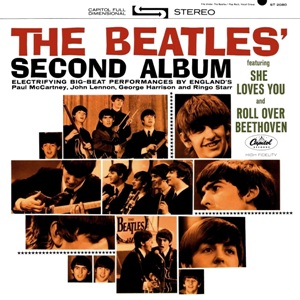
The Beatles' Second Album is the second Capitol Records album by the English rock band the Beatles, and their third album released in the United States including Introducing... The Beatles, which was issued three months earlier by Vee-Jay Records. Following its release in April 1964, The Beatles' Second Album replaced Meet the Beatles! at number 1 on the Billboard Top LPs chart in the US. The album was compiled mostly from leftover tracks from the UK album With the Beatles and Long Tall Sally EP, which are predominantly rock and roll and R&B covers, and rounded out with several Lennon-McCartney-penned non-album b-sides and the hit single "She Loves You". Among critics, it is considered the band's purest rock and roll album and praised for its soulful takes on both contemporary black music hits and original material.
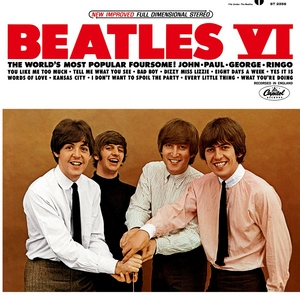
Beatles VI is the seventh Capitol Records studio album by the English rock band the Beatles in the United States and Canada. It was the ninth album released into that market in less than one and a half years. The LP was released in both mono and stereo versions.

Rock 'n' Roll Music is a compilation album by the English rock band the Beatles containing previously released tracks. It was issued on 7 June 1976 in the United States, on Capitol Records, and on Parlophone in the United Kingdom, four days later. A double album, the 28-track compilation includes 15 Lennon–McCartney songs, one George Harrison composition ("Taxman"), and a dozen cover versions of songs written by significant rock and roll composers of the 1950s, including Chuck Berry, Little Richard, Carl Perkins and Larry Williams. Not counting the 1971 Spanish compilation album, Por Siempre Beatles, Rock 'n' Roll Music was the first Beatles album to include "I'm Down", which had previously only been available as the B-side of the "Help!" single.

"I'm Only Sleeping" is a song by the English rock band the Beatles from their 1966 studio album Revolver. In the United States and Canada, it was one of the three tracks that Capitol Records cut from the album and instead included on Yesterday and Today, released two months before Revolver. Credited as a Lennon–McCartney song, it was written primarily by John Lennon. The track includes a backwards lead guitar part played by George Harrison, the first time such a technique was used on a pop recording.
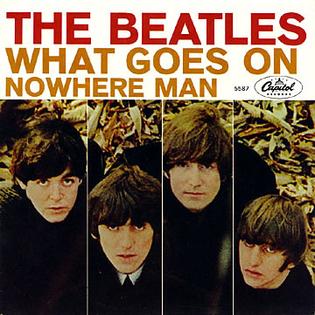
"What Goes On" is a song by the English rock band the Beatles, featured as the eighth track on their 1965 album Rubber Soul. The song was later released as the B-side of the US single "Nowhere Man", and then as the tenth track on the North America-only album Yesterday and Today. It is the only song by the band credited to Lennon–McCartney–Starkey and the only song on Rubber Soul that features Ringo Starr on lead vocals. The song reached number 81 on the US Billboard Hot 100 in 1966.

"Thank You Girl" is a song recorded by the English rock band the Beatles, written by John Lennon and Paul McCartney. It was issued as the B-side of the single "From Me to You", which was recorded on the same day. While not released on an LP in the United Kingdom until Rarities in 1978, the song was the second track on The Beatles' Second Album in the United States. As the B-side of the single "Do You Want to Know a Secret", it hit No. 35 on the Billboard Hot 100 in the spring of 1964.

"You're Going to Lose That Girl" is a song by the English rock band the Beatles from their 1965 album and film Help! Credited to the Lennon–McCartney songwriting partnership, the song was mostly written by John Lennon with contributions from Paul McCartney.
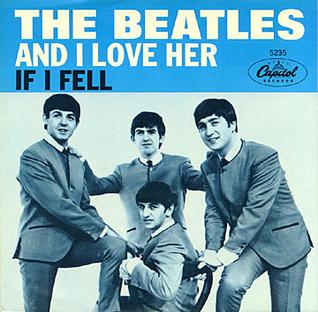
"And I Love Her" is a song recorded by English rock band the Beatles, written primarily by Paul McCartney and credited to the Lennon–McCartney partnership. It is the fifth track of their third UK album A Hard Day's Night and was released 20 July 1964, along with "If I Fell", as a single release by Capitol Records in the United States, reaching No. 12 on the Billboard Hot 100.

"Yes It Is" is a song by the English rock band the Beatles. Written by John Lennon, it was first released in 1965 as the B-side to "Ticket to Ride". It features some of the Beatles' most complex and dissonant three-part vocal harmonies and showcases George Harrison's early use of volume pedal guitar. Ian MacDonald describes the song as having "rich and unusual harmonic motion."
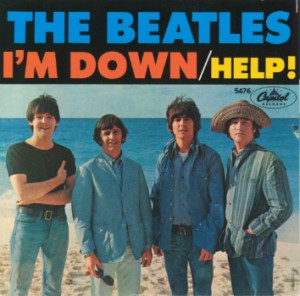
"I'm Down" is a song by the English rock band the Beatles, written by Paul McCartney and credited to Lennon–McCartney. It was released on a non-album single as the B-side to "Help!" in July 1965. The song originated in McCartney's attempt to write a song in the style of Little Richard, whose song "Long Tall Sally" the band regularly covered.

Yellow Submarine is the tenth studio album by the English rock band the Beatles, released in January 1969. It is the soundtrack to the animated film of the same name, which premiered in London in July 1968. The album contains six songs by the Beatles, including four new songs and the previously released "Yellow Submarine" and "All You Need Is Love". The remainder of the album is a re-recording of selections from the film's orchestral soundtrack by the band's producer, George Martin.
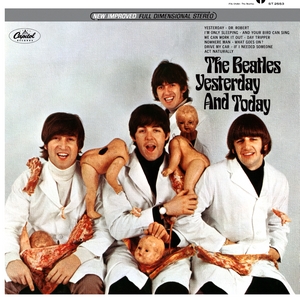
Yesterday and Today is a studio album by the English rock band the Beatles. Released in the United States and Canada in June 1966, it was their ninth album issued on Capitol Records and twelfth American release overall. Typical of the Beatles' North American discography until 1967, the album contains songs that Capitol had withheld from its configurations of the band's recent EMI albums, along with songs that the group had released elsewhere on non-album singles. Among its 11 tracks are songs from the EMI albums Help! and Rubber Soul, and three new 1966 recordings that would appear on Revolver in countries outside North America.
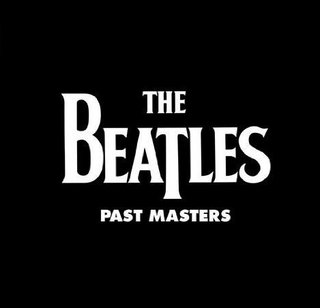
Past Masters is a two-disc compilation album set by the English rock band the Beatles. It was originally released as two separate volumes on 7 March 1988, as part of the first issue of the band's catalogue on compact disc. The album contains all songs released commercially by the band that were not available on the Beatles' 12 original UK albums or the US Magical Mystery Tour LP. It was compiled by Beatles historian Mark Lewisohn, who also wrote the liner notes. The majority of the Past Masters set consists of A- and B-sides from the band's singles, including single versions of songs that appeared in a different form on the band's albums. Also included are the full contents of the UK-only Long Tall Sally EP, two German-language tracks, a song recorded for the American market, and a track released on a charity compilation album.
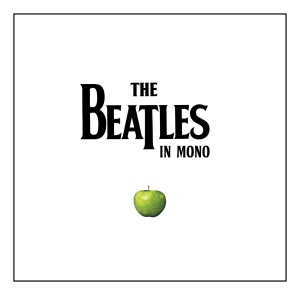
The Beatles in Mono is a boxed set compilation comprising the remastered monaural recordings by the Beatles. The set was released on compact disc on 9 September 2009, the same day the remastered stereo recordings and companion The Beatles were also released, along with The Beatles: Rock Band video game. The remastering project for both mono and stereo versions was led by EMI senior studio engineers Allan Rouse and Guy Massey.
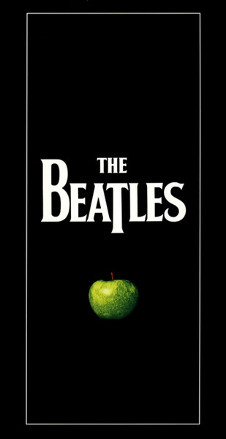
The Beatles (The Original Studio Recordings), also known as The Beatles: Stereo Box Set, is a box set compilation comprising all remastered recordings by English rock band the Beatles. The set was issued on 9 September 2009, along with the remastered mono recordings and companion The Beatles in Mono and The Beatles: Rock Band video game. The remastering project for both mono and stereo versions was led by EMI senior studio engineers Allan Rouse and Guy Massey. The Stereo Box also features a DVD which contains all the short films that are on the CDs in QuickTime format. The release date of 09/09/09 is related to the significance to John Lennon of the number nine.
Rarities is the name of two separate and unrelated compilation albums by the English rock band the Beatles. The first was released in the United Kingdom in December 1978, while the second album was issued in the United States in March 1980.


